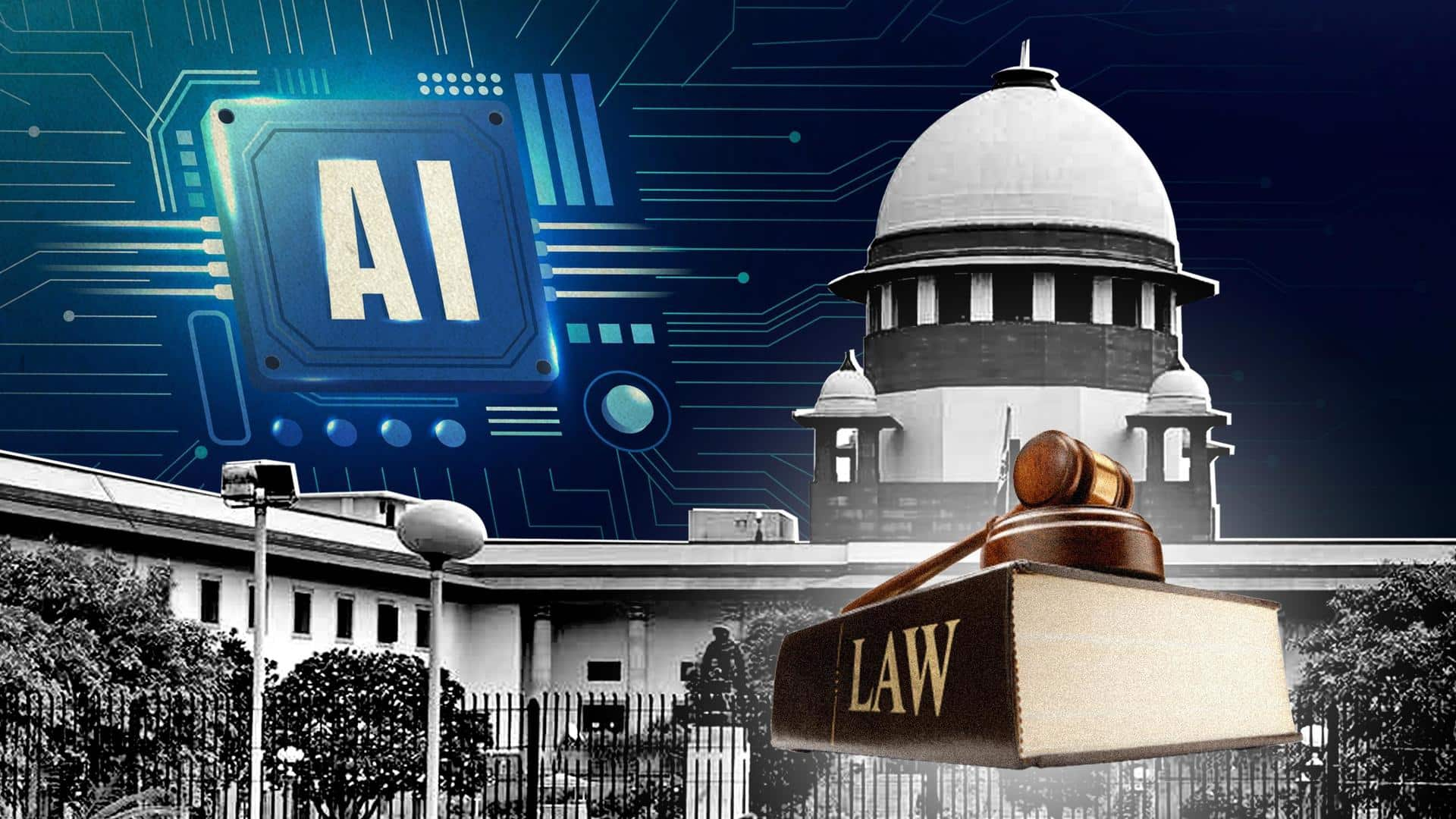
SC is using AI to transcribe proceedings: Here's why
What's the story
A five-judge bench headed by Chief Justice of India (CJI) DY Chandrachud, is hearing a case related to a political crisis in Maharashtra. While the case is high-profile, what seems to have caught everyone's attention is the use of artificial intelligence (AI) to transcribe the Supreme Court's proceedings. This project is the first-of-its-kind in India. But why is it being done? Let's find out.
Context
Why does this story matter?
In September last year, the SC decided to live stream proceeding in important cases pertaining to its Constitution Bench. Now, it has resorted to transcribing to make its work more transparent. While this is a new phenomenon in our country, transcription of hearings has been going on for quite some time in countries like the UK and the US.
Details
How does the transcribing AI work?
Teres, a platform used for transcribing arbitration proceedings, is being utilized by SC. It is made by a Bengaluru-based company. During transcription, if two or more persons speak simultaneously, it creates a "bit of a problem." However, the firm has personnel to remove errors. Finally, the transcripts are shared with lawyers arguing the cases and are also uploaded on the SC website every evening.
Case
Which case's proceedings are currently being transcribed?
On February 17, the CJI-led five-judge bench deferred a decision on whether it would reconsider its 2016 verdict in Maharashtra's Nabam Rebia vs Deputy Speaker case. Seven years back, the top court had held that the Speaker of the Legislative Assembly could not disqualify someone when there is a pending motion seeking his own removal. This is certainly an important case.
Availability
Where to see the transcripts?
Interested parties can see the AI transcript on the live-streaming screen of the CJI's court (courtroom number 1). This will go a long way in making the court's proceedings transparent as all data will be accessible to the public. India is not the only country to take such a step. The courts in the US and UK also keep a record of court proceedings.
Official words
'Transcripts will aid lawyers as well as law colleges'
Describing the importance of maintaining transcripts of court proceedings, the CJI said, "We'll see how it works, especially in the Constitution Bench matters, because then we'll have a permanent record of arguments. Of course, it helps judges and the lawyers, but it will also help our law colleges." "They can analyze how matters are argued...It is a huge resource," he added.